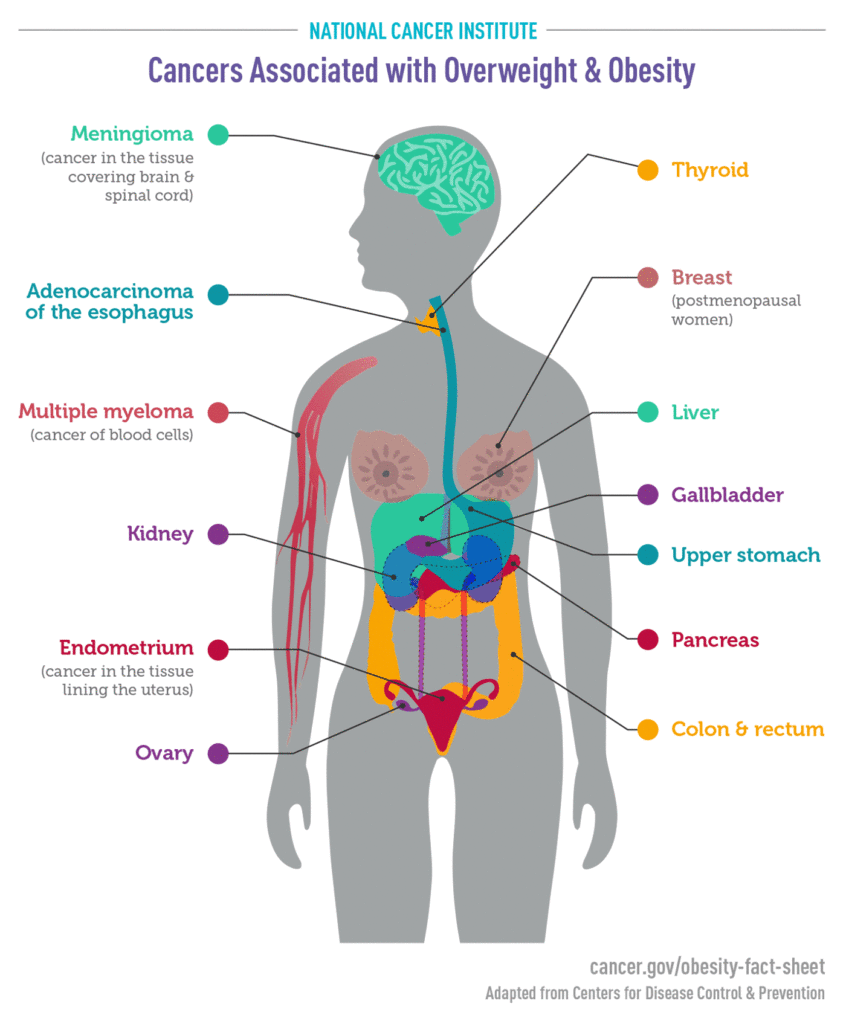Consumers, Science, Better Health – (conscienhealth.org)
Both colon cancer and obesity are rising in young people. In fact, a new report in CA: A Cancer Journal for Clinicians suggests colorectal cancer is on the way to becoming the deadliest cancer for people under 50. While colon cancer death rates are dropping for older persons, they are headed in the opposite direction for younger persons. The rising prevalence of obesity may be a spark for this trend.
The Link of Obesity to Colon Cancer
If you take a look at the relationship between cancer risk and obesity, it becomes clear that obesity presents more risk for some cancers than others. In 2016, the International Agency for Research on Cancer concluded that obesity has a causal link to 13 types of cancer. Colorectal cancer is one of these types, with obesity raising a person’s risk by about 30 percent.
So the link between colon cancer and obesity is not mere speculation based upon a coincidental association. It comes from careful research about the mechanisms by which obesity can cause this form of cancer.
It helps our confidence in this conclusion that effective treatment for obesity, through bariatric surgery, reduces the risk of colorectal cancer.
The Imperative for Care and Prevention
These trends for more colon cancer at younger ages demand our attention. Better screening and treatment for this form of cancer continue to drive down deaths in older persons. But this trend for colon cancer at an earlier age creates challenges because strategies for early detection have long focused on older adults. Younger persons used to have a much lower risk.
Now, colon cancer is emerging not only at a younger age, but also in more aggressive forms. In their new report for CA, Rebecca Siegal et al tell us “colorectal cancer is rapidly shifting to diagnosis at a younger age, at a more advanced stage.”
The good news here is that we can adapt. We know how to screen for colon cancer in older persons. So we can do better for younger persons. We also have better options for treating obesity and reducing its risks than ever before.
Better strategies for obesity prevention represent the final challenge that remains to be met.
